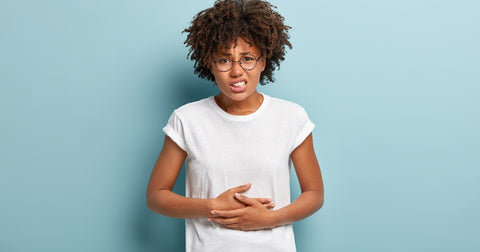Watermelon, the quintessential summer fruit, is not only refreshing and delicious but also packed with nutrients. However, for some individuals, indulging in this juicy treat can lead to unexpected trips to the bathroom. If you enjoy watermelon but experience digestive changes after eating it, you might be wondering, "Does watermelon make you poop?"
Let's dive into the science behind watermelon's effects on your digestive system, exploring its potential to cause diarrhea and other bowel-related changes.

Does Watermelon Make You Poop? The Role of Fiber and Water
Yes, watermelon can indeed make you poop. This is primarily due to its high water and fiber content:
-
Fiber Power: Watermelon contains both soluble and insoluble fiber. Soluble fiber absorbs water in your gut, forming a gel-like substance that softens stool and adds bulk. Insoluble fiber, on the other hand, adds bulk to your stool and helps it move through your digestive system more efficiently.
-
Hydration Hero: Watermelon is about 92% water. Staying hydrated is crucial for preventing constipation and maintaining regular bowel movements.
Can Watermelon Cause Diarrhea?
While watermelon is generally good for digestion, consuming a large amount might lead to loose stools or diarrhea in some individuals. This is because:

-
High Water Content: Excessive water intake can temporarily speed up digestion and lead to loose stools.
-
Fructose: Watermelon contains fructose, a natural sugar that can cause diarrhea in people with fructose malabsorption, a condition where the body has difficulty absorbing fructose.
-
Gastrointestinal Sensitivity: Some individuals might have a sensitive gut that reacts to certain foods, including watermelon, with diarrhea or loose stools.
How Much Watermelon Can Kill You?
It's highly unlikely that you could die from eating too much watermelon. However, excessive consumption can lead to digestive upset, including:
-
Bloating and Gas: The fiber and fructose in watermelon can be fermented by gut bacteria in your large intestine, producing gas.
-
Diarrhea: As mentioned earlier, large amounts of watermelon can trigger diarrhea in some individuals.
-
Water Intoxication: In extreme cases, consuming excessive amounts of watermelon (or any food with high water content) can lead to water intoxication, a dangerous condition where the body's electrolyte balance is disrupted.
Why Does Watermelon Give Me Diarrhea?
The reasons why watermelon might give you diarrhea can vary:

-
Fructose Malabsorption: If you have difficulty absorbing fructose, the fructose in watermelon can lead to diarrhea.
-
Sensitive Gut: Some individuals have a sensitive gut that reacts to certain foods with loose stools.
-
Overconsumption: Eating excessive amounts of watermelon can overwhelm your digestive system.
Why Does Watermelon Make Me Poop?
Watermelon's high fiber and water content contribute to its ability to promote bowel movements. The fiber adds bulk to your stool, while the water helps soften it, making it easier to pass.
Food Intolerance and Digestive Health
If you experience persistent digestive issues, including diarrhea, after eating watermelon or other foods, consider the possibility of a food intolerance or sensitivity.
A food sensitivity test kit can help you identify specific foods that might be triggering your symptoms. By eliminating or reducing these trigger foods, you can potentially alleviate your digestive problems and improve your overall gut health.

Key Takeaways:
-
Watermelon can promote bowel movements due to its high fiber and water content.
-
Excessive watermelon consumption might cause gas or diarrhea in some individuals.
-
If you experience persistent digestive issues, consider a food sensitivity test to identify potential food intolerances.
Remember, this article is intended for informational purposes only and should not be considered a substitute for professional medical advice. If you have any concerns about your digestive health, consult a qualified healthcare professional.
Frequently Asked Questions:
1. Is it normal to have more frequent bowel movements after eating watermelon?
Yes, it's normal for watermelon to increase bowel movements due to its high fiber and water content. However, if you experience severe diarrhea or discomfort, it's best to moderate your intake or consult a doctor.
2. Can I eat watermelon if I have irritable bowel syndrome (IBS)?
Watermelon is generally considered low FODMAP, meaning it's usually well-tolerated by people with IBS. However, individual tolerance can vary, so it's best to start with a small portion and monitor your body's response.
3. Are there any other fruits that have a similar laxative effect as watermelon?
Yes, other fruits high in fiber and sorbitol, such as prunes, figs, and pears, can also promote bowel movements.
4. I'm experiencing digestive issues after eating watermelon, but I don't think it's related to the fiber or water content. Could it be something else?
Yes, it's possible to have a food intolerance or sensitivity to watermelon. Consider a food sensitivity test to identify potential triggers and manage your symptoms effectively.
5. Besides its effect on digestion, what are some other health benefits of watermelon?
Watermelon is a good source of vitamins A and C, antioxidants, and lycopene, which is linked to heart health. It's also low in calories and can be a refreshing and hydrating snack, especially in Miami's warm climate.


.png?v=1737390083)
.png?v=1737187409)


